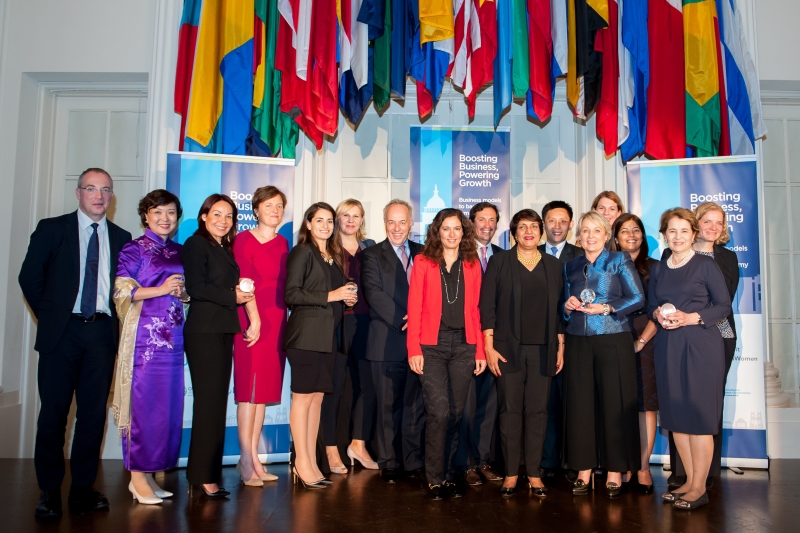
Today, the final activities of the conference entitled “the Reality of the Palestinian Banking Sector: Opportunities and Challenges,” were concluded. The conference, which was held over a period of two days at the Kempinski Dead Sea Hotel in Jordan, was organized by a diamond sponsorship from Bank of Palestine, and through the initiative of the Palestine Monetary Authority (PMA) and the Union of Arab Banks, and in cooperation with the Jordan Central Bank, the Association of Banks in Palestine and Jordan, and the Council of Arab Economic Unity, part of the League of Arab States.
The activities of the conference included a discussion about the reality of the Palestinian banking sector and the opportunities and challenges it is confronted with. During the first session, the future of the banking sector was discussed in light of the economic stifling, its role in development, attracting credit, funding small and medium sized enterprise (SME’s), in addition to developing banking relations between Palestine and the Arab World. The second session discussed Palestinian economic relations with the Arab World and the rest of the world, Arab investment in Palestine, and economic relations with Israel and the rest of the world. The conference also focused on the role of banks in disseminating financial services, financial stability in Palestine, investment incentives, developing the performance of the financial and banking sectors, in addition to finding investment opportunities in Jerusalem.
The conference was attended by Arab and foreign delegations and officials from the financial and banking sectors, journalists and media persons, in addition to a high profile delegation representing Bank of Palestine, which included members from the Board of Directors, the Deputy Director General, assistants, heads of departments and administrations, and other officials.
During the conference, officials and experts from the Arab financial sector called upon increasing investments in the various economic and financial sectors, and encouraging banks to support productive projects and initiatives to promote and increase their contribution to the developmental process. They also stressed upon the importance of incentives for the financial system in order to increase its contribution to provide funds and loans to productive sectors, in addition to the establishment of a fund by Arab banks to invest in Palestine. The participants also encouraged the adoption of further procedures that push the banking sector forward, including the continuation to focus on the provision of electronic banking services and adjust the appropriate environment to decrease dependence on cash during the achievement of various transactions.
Ms. Lana Abu Hijleh, member of the Board of Directors at Bank of Palestine, stressed out the importance of financial inclusion, sustainability and expansion during the development of financial and banking services, and launching various programs for the empowerment of Palestinian women, in addition to the creation and development of new technological services to assist in achieving financial inclusion, and focusing on the quality of financial services provided by banks while offering variety to clients. She added that 20% of bank accounts in Palestine are owned by women, and most of these accounts are savings accounts, and therefore, women are considered marginalized by the banking sector. Abu Hijleh also added that integrating women in the Palestinian job market will significantly increase the Gross Domestic Product (GDP) because the participation of women in the Palestinian workforce represents only 17%, and this percentage is much less than the participation of women in the workforce within the Arab World, which reaches 24%, and in developed countries, which reaches 50%. Hence, Abu Hijleh believes that the participation of Palestinian women is one of the untapped pillars in Palestinian economy.
Abu Hijleh also pointed out the bank’s efforts in expanding its services to reach rural areas and universities, stating that the percentage of citizens who do not benefit from banking services in Palestine reached 50%, and there is only one bank branch for every 18,000 citizens, when there should be one branch for every 10,000, in order to fulfill the banking needs of citizens. She also stressed upon the importance of investment in youth, taking into consideration that Palestinian society comprises 75% youth below the age of 35 years, and the provision of support for micro, small and medium size enterprise, pointing out that this portfolio achieves 35% growth annually.
In his intervention during the conference, Mr. Rushdi Al Ghalayini, Deputy Director General of Bank of Palestine, addressed the banks listed in the Palestine Stock Exchange, pointing out that the banking sector represents one third of the market value in the stock exchange, hence its importance in the financial field considering the increase in return on investment. From another angle, Al Ghalayini stressed the importance of developing the bond market that is beginning to grow in Palestine, pointing out that bonds are financial securities with investment viability.
With regards to Bank of Palestine’s investment in Isalmic banking, Al Ghalayini ensured that this practice aims to benefit from the great growth and increasing demand on Islamic banking, and while studies point out that the market for Islamic financial transactions is approximately 25% in the region and around the world, this rate is about 11% in Palestine. Al Ghalayini called upon the acceleration of dependence on electronic procedures and transactions and speeding up judicial procedures in banking and financial transactions.